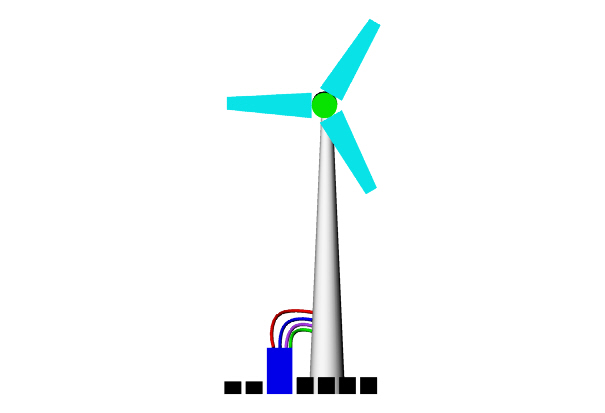I have been asked to help design a system to be completely off-grid. The system will start with 8 'golf cart batteries' and a small diesel charging them with a 24V alternator as needed. This will supply a freezer, chest type refrigerator, lights, domestic water and part time internet connection by satellite. The refrigerator and freezer may be the only "120V" loads.

This system will eventually 'morph' into a larger system. Planned upgrades are a high-voltage 15 pole 3PH turbine feeding a 3HP transformer that may be custom wound. Thoughts are it will transform the high voltage to charge a 48V battery bank of considerable size. I am thinking at low wind-speed one may be able to get a bit of 24V charging off the mill and feed the 24V system if it were low. There will need to be some sort of switching to cut power to the low voltage system once the batteries are full.
If considerable wind is available, there will be plenty of places to 'dump' power in this system. A large shop will be nearby that will be able to use any excess once water is pumped and a large chunk of ice is frozen for supplemental refrigeration.
If all wind decides to play somewhere else, one could 'fall back' to the 24V system and the small diesel. This would allow one to 'exist in style' and still not use much purchased fuel. If almost any wind were available, the 24V system should charge first. The 48V bank could be kept to voltage if necessary by the small diesel and some intelligent thinking.
Now, I am looking for thoughts on practicality of such a system and what I am overlooking. I think this will keep the system simple and still affordable. And, yes, there will be some PV panels in the mix as the system matures, MPPT, and panel tracking will be employed on that system.
'Picture so some can color their screen with crayons'.
Ron